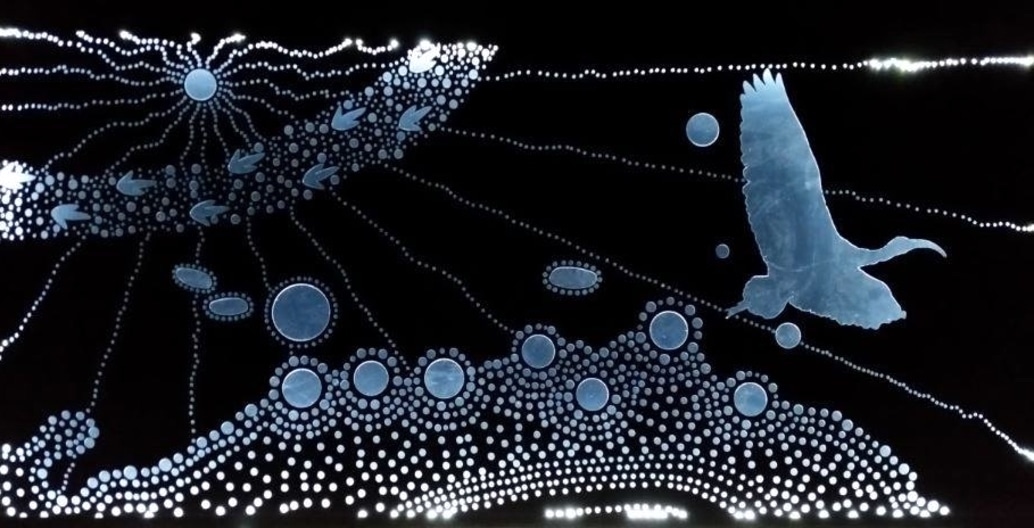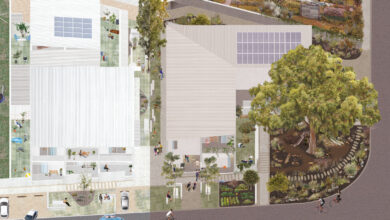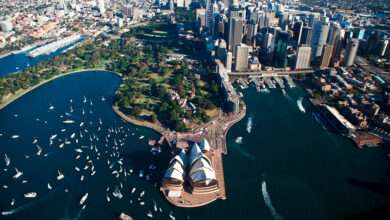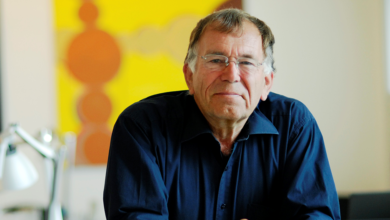
Foreground weekly review: NAIDOC week
In our first of a new series of regular posts – Foreground Weekly Review – we consider recent news and how that is affecting built-environment agendas and the wider realm of cultural and environmental planning, design, management and appreciation. NAIDOC week has guided our reflections this week.
This week is NAIDOC week, a celebration of the history, culture and achievements of Aboriginal and Torres Strait Islander peoples. This year’s theme ‘Voice. Treaty. Truth. Let’s work together for a shared future’ acknowledges the elements of reform set out in the Uluru Statement, including an enhanced role for Indigeous people in decision-making in Australia’s democracy.
The voices of Indigenous peoples do seem increasingly present in contemporary debates, although important perspectives and knowledge still appear to have minimal influence. For example, tree removal for road widening is frequently contested but with little impact. As Aunty Sandra said of the ongoing struggle to protect over 3000 trees, including hundreds of years old birthing trees on the land of the Djab Wurrung people in western Victoria, “They won’t listen to us blackfellas“.
Last week the Budj Bim cultural landscape, in western Victoria, became the first site in Australia to be added to the UNESCO world heritage list solely for its Aboriginal cultural importance.
Also last week UNESCO asked for a review and updated environmental impact statement for the proposed raising of Warragamba Dam. A series of articles in the past few weeks have questioned the decision to raise the dam wall, not least citing concerns from traditional custodians. “We’ve got burials, art sites. Ceremony sites, camp sites, you name it. It’s all there. It’s our culture – that’s what will be lost” says Kazan Brown a Gundungurra woman. Recalling the pressure exerted by the World Heritage Committee which forced “the Abbott government to act, banning new dredging works and promising hundreds of millions of dollars for reef protection”, it is now the turn of the NSW government to respond to the ‘extreme embarrassment’ that its plan has caused.
‘Caring for Country’ is an increasingly powerful and meaningful phrase for everyone in light of popular movements to acknowledge climate change. It was over a decade ago that the Anchorage Declaration was formulated at The Indigenous People’s Global Summit on Climate Change, but the vision and assistance it offers still awaits the vital attention it deserves:
Through our knowledge, spirituality, sciences, practices, experiences and relationships with our traditional lands, territories, waters, air, forests, oceans, sea ice, other natural resources and all life, Indigenous Peoples have a vital role in defending and healing Mother Earth. The future of Indigenous Peoples lies in the wisdom of our elders, the restoration of the sacred position of women, the youth of today and in the generations of tomorrow.
There is increasing recognition of a very long tradition of Indigenous people’s adaptation and memory of climate shifts and sea-level rise. UNESCO acknowledges that “Indigenous knowledge operates at a much finer spatial and temporal scale than science, and includes understandings of how to cope with and adapt to environmental variability and trends.” One way to recognise the value of this applied knowledge in Caring for Country is through payment for ecosystem services. Another should be better support for Indigenous Rangers.
Future economies will inevitably trade what is valuable, and biodiversity, clean air and water are already being priced in various ways even if central governments are slow to develop – or nervous of commitment to – effective mechanisms. Less than a week after the Liberal-National Party was returned to office, the NSW government announced it will dismantle the Office of Environment and Heritage in a much criticised move. Environmental protection and management will be moved to an enlarged ‘Planning and Industry’ department, while heritage will be moved to the arts portfolio. The shift has been called “a worrying one when you look at the big picture and the priority drivers for government policy”.
The business sector is moving forward itself to recognise the intertwined long-term importance of investment in heritage and environment enhancement. Super funds and other global investors last month made an unprecedented call for world governments to pursue carbon pricing and act to limit emissions to fight climate change.
But if the planet-saving big picture of indigenous thinking is difficult to grasp and use in our everyday lives, there is much more to consider close at hand. Food production is a thriving area for communities where sustainable, place-sensitive harvesting and agriculture is key. Something Wild an Indigenous-owned supplier of native foods based at Adelaide’s Central Market, recently collaborated with the Fleurieu Milk Company to release a range of Native Australian Yoghurts at the end of June made with native fruits while providing sustainable employment for Indigenous harvesters around Australia.
Working with the Indigenous-owned Something Wild Beverage Company, Adelaide Hills Distillery won a gold medal at the San Francisco World Spirits Competition for their Green Ant Gin. And last week an Australian gin that uses native botanicals and native honey from stingless bees topped the silver category in the London Spirits Competition. Winners, The Farmer’s Wife Distillery, was established less than a year ago on the family farm. They pay careful attention to sustainable harvesting practices, especially as demand and prices soar with interest. Rethinking the diverse income streams from traditional ‘bush tucker’, native foods and tourism has great potential for better planning, management and design of environments.
The cross- and inter-cultural experiments of native ingredients are complex. In June, Masterchef fans were angered when ‘Scottish’ chef Jock Zonfrillo was the surprise guest for a challenge focused on native foods. The celebrity chef runs Adelaide restaurant Orana and the not-for-profit The Orana Foundation, whose mission is to preserve the sophisticated cooking techniques and ingredients of Australia’s First Nations. But many fans thought an Indigenous chef should have been asked.
In a long, generous read for NAIDOC week that reflects on the philosophy of treaties, Stan Grant grapples with the reconciliation of Indigenous rights with our liberal democracy. This is not unlike the reconciliation of protection and enhancement of native landscapes and their value, with needs for overlapping and competing human uses of other value to us. Grant unpacks many threads of Australia’s current relationships and situation, both with regard to Indigenous rights, and also sensitivities to place and belonging that are universal.
“How might the narratives of nation be retold?” is a fundamental query that asks for recognition that can also look forward to shared cosmopolitanism. Our environments shape us as we shape them, and they are all special and valuable in ways that reject marginalisation that privileges some over others. We are at a point, Grant suggests, where individuals could “be freed to explore the full range of their affiliations, ambitions and desires [and] believe in an Australia that had not always believed in them”. We are not just at an environmental tipping point, but also at an ethical one. They are not accidentally linked.
–
Foreground reads: our pick from around the web for NAIDOC week
Budj Bim Indigenous eel trap site added to world heritage list
A site in Victoria that’s older than the pyramids, the Acropolis and Stonehenge has been added to the world heritage list. The Budj Bim Cultural Landscape in south-west Victoria became the first in Australia to receive world heritage protection solely for its Aboriginal cultural importance.
UNESCO concerned over Warragamba Dam plan
UNESCO’s World Heritage Committee has urged Australia to submit an updated environmental impact statement for a controversial proposal to raise the wall of the Warragamba Dam before any final decisions regarding the project are made. The committee on Wednesday found the proposal was incompatible with the world heritage status of NSW’s iconic Blue Mountains.
NSW’s reshuffle leaves environment a small player in a big pond
NSW environment and climate supporters would have been in shock on Tuesday afternoon. Early news had just seeped out that newly re-anointed premier Gladys Berijiklian looked like she’d reneged on the still fresh optimism on climate action she stoked in the weeks before the state election and had demolished the Office of Environment and Heritage. OEH would now be subsumed into a mega-department or “cluster” of planning and industry headed by Rob Stokes who previously held the role before being unceremoniously dumped during a reshuffle.
National parks funding decreases amid growing threats to the environment, former ranger warns
Former rangers, traditional owners and conservationists are warning Australia’s national parks are reaching an environmental tipping point, with funding cuts at both a state and federal level leaving them in poor condition.


